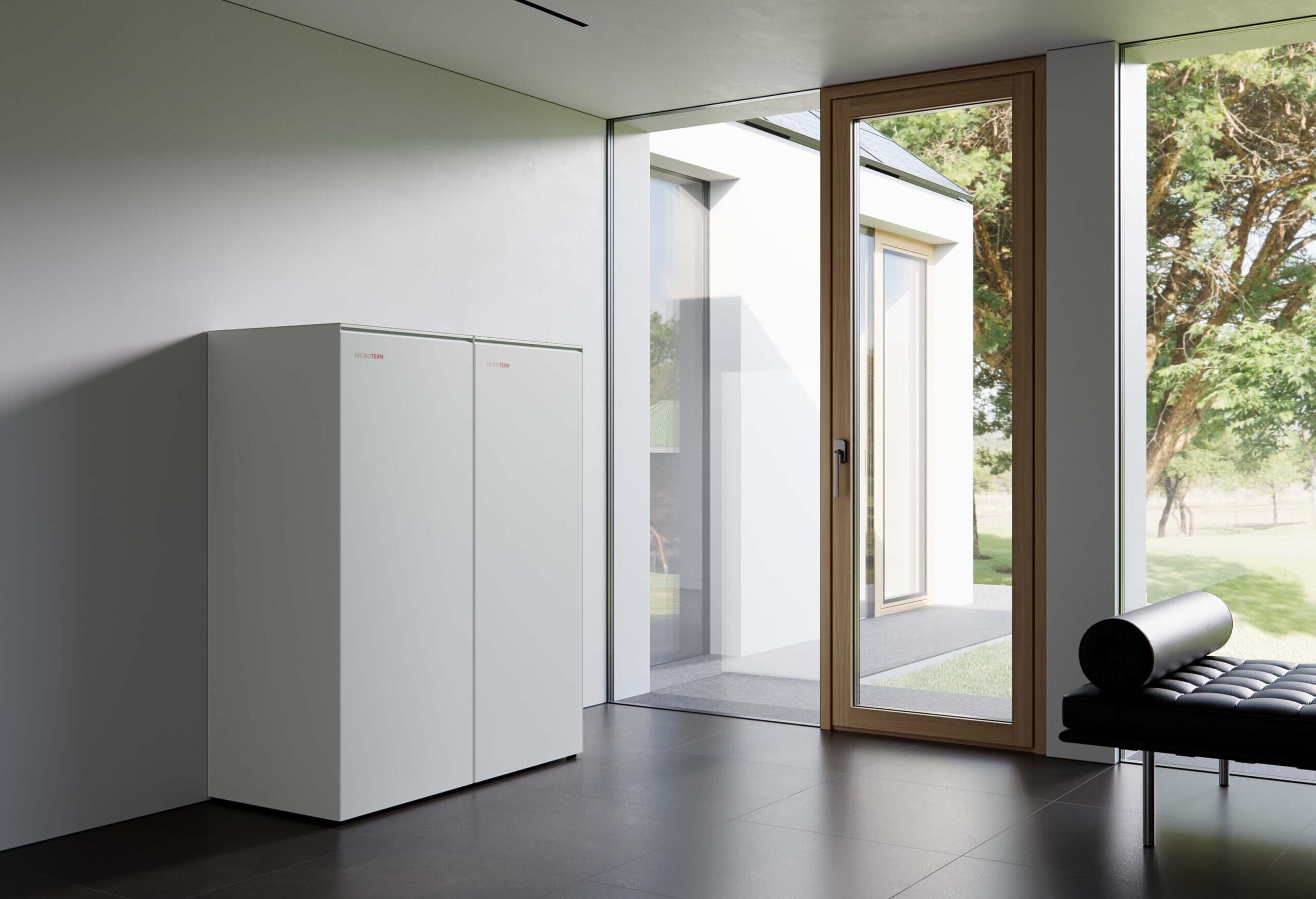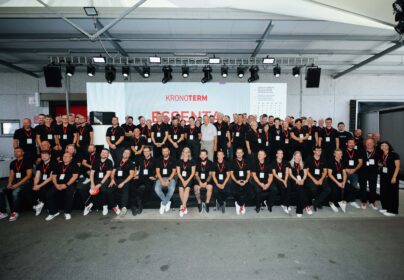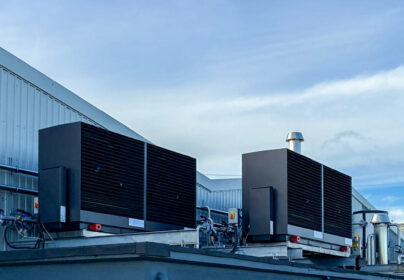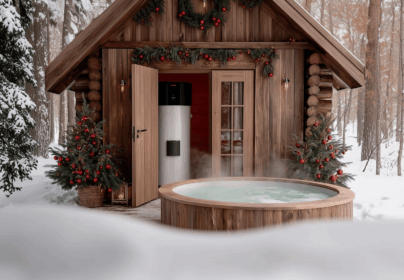A water/water heat pump is considered the most efficient heating solution because it utilizes groundwater heat. This source keeps a stable temperature year-round (between 7 and 12 °C – closest to optimal living temperature among all sources), ensuring extremely efficient and reliable performance.
A water/water heat pump uses the heat of groundwater. Water from the well flows through the heat pump, where heat is extracted, and is then returned to the environment.






